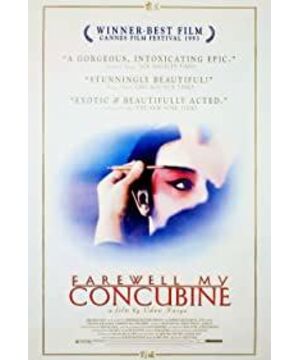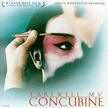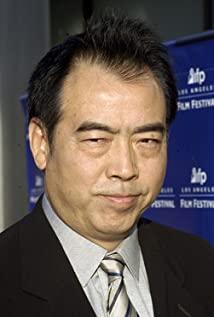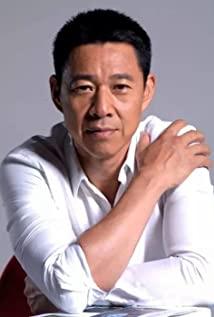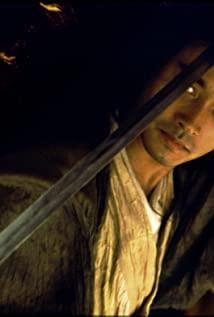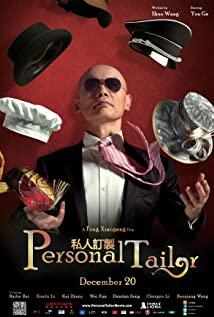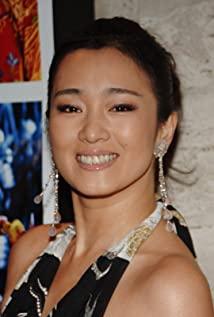In Lacan's three-level model of personality, he divides personality into the real world, the imaginary world and the symbolic world. The transition from the real to the imaginary is done through the mirror phase. Lacan believes that the infant initially recognizes the self through the mirror image, that is, establishes the self through the bilateral relationship with the mother. "The unconscious of the subject is the discourse of the other." The original form of the self is presented by the form of the other.
In connection with the movie, we can find that Chen Dieyi's mother was a prostitute, which not only led to the absence of his father's role in childhood, but also caused his childhood life to be an almost only female character full of fat and powder. The kiln that came out. It can be said that before he was almost cruelly "thrown" by his mother to the troupe, he did not have any male characters in his entire life.
I think this must have affected his gender identity to a certain extent, but it was not the most important factor in the tragedy of his life. Because after entering the troupe, Xiaodouzi's performance clearly showed this. He would always mistake the line "I am a female Jiao'e, but not a man's man" in "Si Fan" as "I am a man's man, but not a female Jiao'e." Unwilling to change. But I think this does not show Xiaodouzi's strong identification with his own male identity, but reflects his confusion and overwhelm with his gender identity. Because if you think about yourself, whether it's a female Jiao'e or a male man, it's just a line to put it bluntly. I can hardly think of any reason why I'd be beaten with blood blistered for a line and still be reluctant to change it. From here, we can actually see that Xiaodouzi jumped from a purely female environment to a dazed after a purely male environment.
When Xiaodouzi first entered the troupe, he actually endured a lot of teasing and insults, but when he threw his mother's "thing from the kiln" - the coat into the brazier, you can see his determination to say goodbye to the past. But that doesn't mean Xiaodouzi's heart is really ready. From a female-only kiln to an all-male troupe forced to play women, Xiaodouzi has struggled to survive. The surrounding environment and his own observations tell him that he is a male, but the teacher's requirements and childhood memories force Xiaodouzi to constantly doubt his male identity. In the process of recognizing one's own gender, senior brother Duan Xiaolou undoubtedly played an irreplaceable role in promoting.
As I said before, almost all of Xiaodouzi's first entry into the troupe was ridiculed and beaten, except for Duan Xiaolou. Whether it was letting Xiaodouzi sleep with him at first sight, throwing him a quilt, or being scolded by the master for kicking a brick for him, Xiaodouzi felt the warmth that he no longer had after leaving his mother. . I think at this stage, Xiaodouzi's feelings for his senior brother are very subtle, and it is not clear whether it is his attachment to his family, that is, using his senior brother as a substitute for his mother, or he has already developed a love that surpasses his senior brother's affection. Or maybe the two are inseparable. But the appearance of this unidentifiable senior brother undoubtedly quickly promoted the tragedy of Xiaodouzi's reversal of her own gender cognition.
In the film, Xiaodouzi accidentally saw the performance of "Jiao'er" when he escaped from the troupe, and at that time he felt that only by becoming a Jiao'er can he stand out. In his mind, he unintentionally regarded "becoming a character" as the best way to be recognized by the world. Afterwards, the senior brother reprimanded Xiaodouzi for his unwillingness to change his tune and even poked his pipe into his mouth. These two completely pushed Xiaodouzi into a life of gender inversion. Lacan believes that children will form their symbolic world from the imaginary world through the stage of the Oedipus complex. That is to say, in this stage, "from identifying with the mother's desire object in order to identify with the mother to identifying with the mother in order to identify with the father. ②" After this process, people grow from the mirror self to the social self. In the film, it can be explained that in order to gain Duan Xiaolou's approval, Xiaodouzi has reached an agreement with the troupe master or the society. After that, Xiaodouzi completely grew into a social me. And the tragedy of Chen Dieyi's life began with Xiaodouzi's strange smile and blood dripping from the corners of her mouth after she sang Sifan's words.
Afterwards, "Overlord Yu Concubine" and "from the beginning to the end" will undoubtedly increase the shackles on Chen Dieyi, who is already gender disordered. Whether it is immersed in the love with the overlord (senior brother) in the drama, or being immersed in the identity of being a character (playing a woman) with everyone, Chen Dieyi is getting deeper and deeper, so that the ten years of Farewell My Concubine sings down , he has completely lived in the play. It's not that people and dramas are indistinguishable, but to him, drama is life. Zhuang Shengxiao dreamed of butterflies, who knows which realm is not a fantasy realm?
As said in the film, "Concubine Yu is the real Concubine Yu, and the overlord is a fake overlord", no one has the obligation and no one (except the fourth master Yuan in the play) can accompany Dieyi to live in his world. Duan Xiaolou's wife, until the outbreak of the Cultural Revolution. Dieyi not only lost the protection of the "True Overlord" Yuan Siye, but also lost the stage equal to life for him. This was a fatal blow to Dieyi. If a butterfly has its wings broken, it will never fly again.
At the end of the film, Dieyi's chaotic Sifan lines before her suicide - "I am a man, not a female Jiao'e", in my opinion, is a sigh of Dieyi for her life. Being obsessed with being male or female at a young age, and then entangled in drama or life, all this seems to be a joke at this moment for Dieyi. What is worth worrying about and what is indistinguishable. Human life, to put it bluntly, is nothing but an illusion and nothingness. As Lacan said, what I am, I am nothing but the words of the Other.
Some people say that Dieyi's final enlightenment is because of Duan Xiaolou's betrayal, but I think it is far from it. Dieyi's final enlightenment should be a clear understanding of his entire life or destiny. After going through all this, he finally broke the mirror image that had entangled him for decades, and he saw the only truth in life, that is-life is nothing but an illusion.
So, it's not that I'm too crazy, it's that fate doesn't allow it. Or rather, it is fate.
View more about Farewell My Concubine reviews


